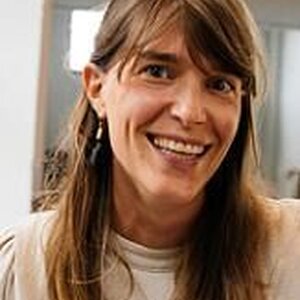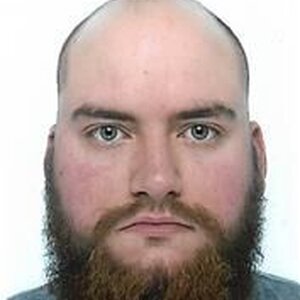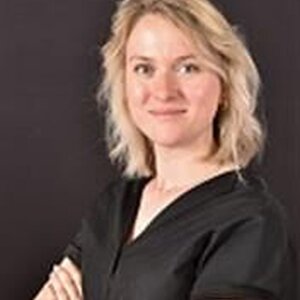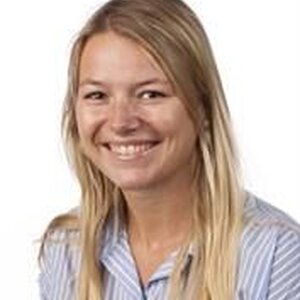YOUNG-D is a European project (Erasmus+) on the prevention and management of anxiety, stress and sleep problems in people with early onset dementia (OED).
The overall aim of this project is to increase awareness and knowledge of (future) health care providers in the included EU-partners on psychosocial and behavioral program YOUNG-D in people with early onset dementia in order to prevent and manage anxiety, stress and sleep problems, which in turn increases heart rate variability, wellbeing and quality of life.
Research project YOUNG-D is led by the research team Active Living and Lifestyle of Odisee University of Applied Sciences and is co-funded by the Erasmus+ Programme of the European union.

International Conference
Odisee University of Applied Sciences invites you to the first International Conference on Young Onset Dementia
Conference dates | 18 & 19 September 2024
Conference venue | Odisee University of Applied Sciences Campus Brussels
Registration, program and practical info | all available on the conference page
Looking forward to meeting you in September!
The YOUNG-D organising committee
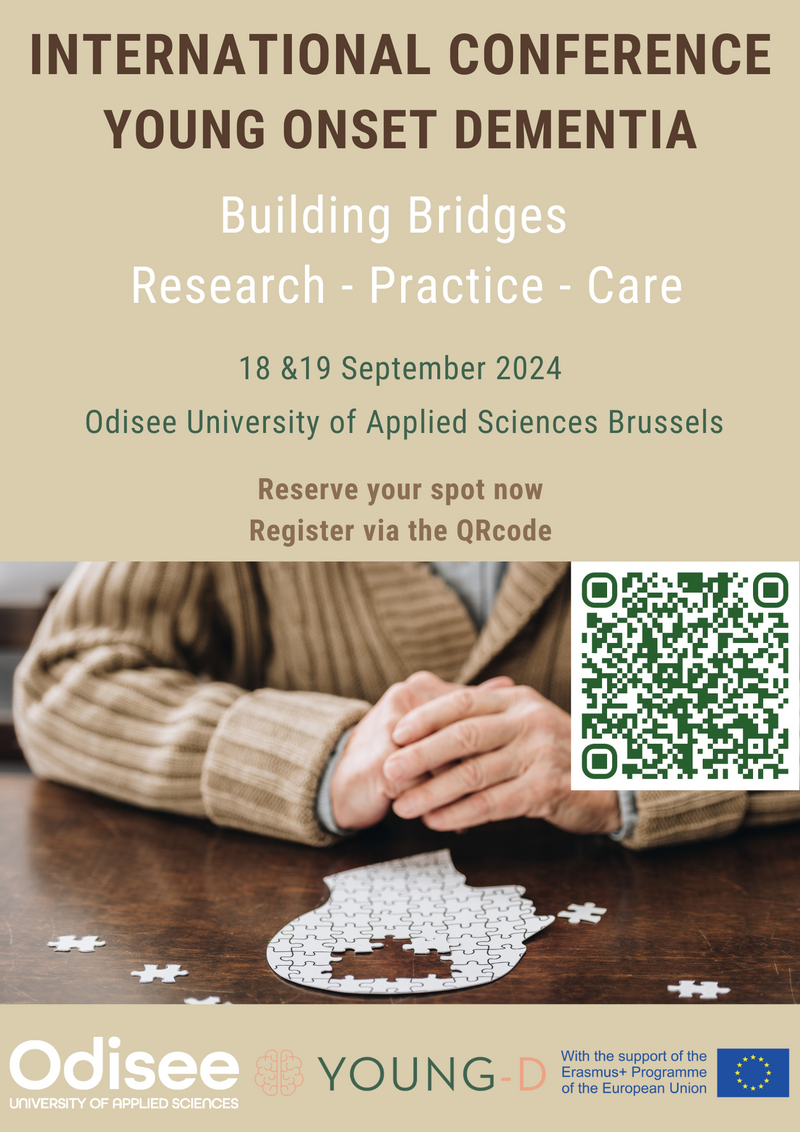
The overall aim of this project is to increase awareness and knowledge of (future) health care providers in the included EU-partners on psychosocial and behavioral program YOUNG-D in people with early onset dementia in order to prevent and manage anxiety, stress and sleep problems, which in turn increases heart rate variability, wellbeing and quality of life.

Early onset dementia
The prevalence of people with early onset dementia (EOD) (diagnosed <65 years) is constantly rising. When dementia kicks in at an early age, the disease-related symptoms often progress faster than is the case in regular dementia (diagnosed >65 years).
Early onset dementia often goes along with increased anxiety, stress and sleep problems, which in turn results in a decreased Heart Rate Variability (HRV) and Quality of Life (QoL). Along with these symptoms come specific needs in the treatment of early onset dementia.
Insight into these needs is necessary to increase the attention paid to these problems within the current care for this target group and to offer treatment options to maintain QoL and wellbeing as optimally as possible. However, although the literature indicates that early onset dementia is associated with anxiety, stress and sleep problems and although previous research has already demonstrated the impact of these problems on the QoL and wellbeing of this target group, the experienced needs associated with this issue appear to be undocumented in the literature, as a result of which current care is not yet optimally adapted.
Furthermore, current curricula of health care educational programs in Universities for Applied Sciences lack content on anxiety, stress and sleep problems in early onset dementia in order to educate and train future health care providers (students).

JONG-D and YOUNG-D
In a current research project of Odisee University College of Applied Sciences, the researchers of the research team JONG-D explored the needs of people with early onset dementia and developed a six week psychosocial and behavioural program (JONG-D) that is being piloted within four Flemish day care centers for people with early onset dementia.
By doing so, the effects of this program on primary (anxiety, stress and sleep) as well as on secondary outcomes (QoL, wellbeing and HRV) will be examined and reported.
Based on the knowledge and developed program JONG-D from the former research study of Odisee University of Applied Sciences, European project YOUNG-D is focused on knowledge transfer and implementation of the psychosocial and behavioural program in several European countries.
Aims
The overall aim of this project is to increase awareness and knowledge of (future) health care providers in the included EU-partners on psychosocial and behavioral program YOUNG-D in people with early onset dementia in order to prevent and manage anxiety, stress and sleep problems, which in turn increases HRV, wellbeing and QoL.
Subsidiary aims
To increase awareness and knowledge in health care providers about people with early onset dementia regarding anxiety, stress and sleep problems by developing and teaching a train-the-trainer course.
To implement a six week evidence based psychosocial and behavioral program in other European health care facilities with the aim to reduce anxiety, stress and sleep-problems in people with early onset dementia.
To increase awareness and knowledge in health care students and lecturers about people with early onset dementia regarding anxiety, stress and sleep problems by means of a blended learning course.
To disseminate the project results and program content via several digital, online, hybrid and live means.
Research project YOUNG-D is led by the research team Active Living and Lifestyle of Odisee University of Applied Sciences and is co-funded by the Erasmus+ Programme of the European union.
Get to know the researchers
Our partners
This EU research consortium consists out of 7 different partners from 4 different EU countries.
Odisee University College for Applied Science is the consortium leader.
- Familiezorg Oost-Vlaanderen (Belgium)
- Hanze Hogeschool (The Netherlands)
- Stichting Interzorg (The Netherlands)
- Ostfalia University of Applied Sciences (Germany)
- Sosu Ostjylland (Denmark)
- Aarhus Community (Denmark)
